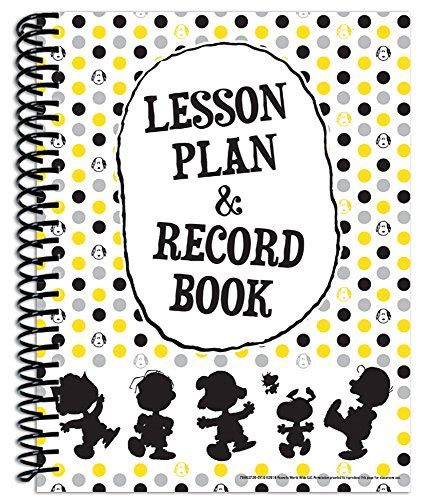Many individuals undervalue the significance of great writing abilities. Apart from the spoken word, writing is one of the world’s oldest modes of communication that is being used today. While we may no longer write letters to one another, our everyday contact is always accompanied by some sort of writing, whether in the form of text messages, daily emails, or social media posts.

It takes time for a decent writer to develop into a great writer. To improve your writing abilities, you must put in a lot of effort and practice regularly. Even the most accomplished authors engage in a variety of writing exercises to keep their skills sharp and their imagination flowing. There isn’t such a thing as a flawless author. Everyone, including your favourite content writer, has room for improvement.
Continue reading to discover more about how you may help people improve their written communication abilities, which is probably one of the most important talents to have.
Why are writing skills important?
You’ll be a better communicator if you have polished, professional writing abilities. It’s just as vital to express yourself properly in emails or newsletters as it is in person. Excellent grammar, spelling, and verb tenses instil trust in your reader and increase your professional reputation.

Simple ways to improve your writing skills
Improving your writing skills is essential for successful communication in the workplace.. There are eight ways you can apply to enhance your writing skills listed below.

Know the basics first
Researching some of the fundamentals is one of the greatest methods to start enhancing your writing talents. Several online resources cover anything from fundamental grammar to advanced spelling and general writing. Take the time to properly examine these materials, particularly any examples offered. If its coverage of a topic isn’t sufficient for you, look for more information on that issue from other sources. Engage with others in online writing forums, ask any questions you have and participate in ongoing discussions.
You will need at least an intermediate knowledge of the basic concepts of writing before you can start creating amazing material. This doesn’t mean you have to enrol in an Ivy League university’s famous creative writing department, but you will need to grasp the fundamentals of grammar and spelling.
Practice as much as you can
Make time to practice what you learnt in your study after you have a basic knowledge of it. Writing is a difficult talent to master, and it improves with practice. Apply what you’ve learned in your emails, announcements, and other written communications at work. If you ever come across a word, phrase, or entire sentence that doesn’t sound right and can’t figure out, revise it to the first step.
Look up your specific issue and find a new way to write it. IIf you want to enhance your writing abilities, writing daily will help you overcome your dread of the blank page and aid in the development of your style.
Become a legit reader
The great writers are also voracious readers, and reading daily is a simple approach to begin honing your writing abilities. Diversify your reading material, and I don’t simply mean blog postings. Expand your horizons by reading more difficult content, and pay attention to sentence structure, word choice, and the flow of the information. The more you read, the more likely you are to develop an eye for what makes a piece so effective, and which mistakes to avoid.
Pick a writing partner
If you work in a decently big firm, there’s a high probability that at least one other person is similarly interested in improving their writing skills. Although writing is often thought of as a lonely activity, the finest writers are aware of when it is appropriate to seek critical feedback on their work.
Talk to your coworkers and see if anyone would be willing to check through your work; they could catch problems you missed. Finding a writing partner is also a good method to keep oneself motivated and accountable.
Enrol in workshops
Most people baulk at the idea of standing in front of a room full of strangers and baring their souls to the world, but joining a writing workshop can be immensely beneficial and a lot of fun
To participate in a class, you don’t need to have an unfinished manuscript stashed away in your desk drawer. Content marketing meet-ups and professional development groups are growing increasingly popular in recent years. Join one of the many content marketing groups on LinkedIn to meet like-minded writers, or search for writing workshops near you on sites like Meetup, Zoom or Skype. Pick a topic, write something, listen to the feedback of the group, and then revise it.
Dissect writing that you admire
Most people read the same blogs or sites regularly because the material appeals to them but fewer people understand why their favourite blogs are so appealing.
Select a few recent blog entries that you enjoy and print them out. Next, use a red pen to highlight things you appreciate, much like your high school English teacher did: specific words, changes of phrase, and even entire paragraphs. Examine why you appreciate these elements, and check whether your favourite reading material has any similar themes. See how writers take one subject and transition into another. Apply these techniques to your work.
Download helpful applications
There are several mobile and desktop programs that can keep track of your job. They highlight misspelt words and phrases that have better alternatives as you type. This is especially useful when you’re writing under a tight deadline. While editing your work is still a good idea, utilizing an application to assist you to discover problems can save you time.
Outlines are always important
Even for the most seasoned writers, the blinking cursor on a blank page is a formidable foe. Before you put pen to paper, make a rough outline of what you want to write. This will be your combat strategy, and it will aid in your victory. Only a small percentage of writers begin writing without a clear strategy in mind.
An outline doesn’t have to be complex. A simple framework of which sections should appear in a particular order, along with a few sentences about what each section contains, may be enough. If the topic you’re writing about is a little more complicated, your outline may need to be as well, but having an outline before you start writing is like having a road map in the glove compartment of your car before a road trip. Return to your outline if you get lost and get back to beating asses and taking names.
The bottom-line
Writing is a difficult task. However, using a pen and paper or sitting in front of your computer and writing is the greatest method to develop. Prepare to write many drafts of each piece because even the best writers’ initial drafts are never flawless. Above all, remember to have fun and never grow discouraged. Keep writing and working to improve your craft with the expectation that there is someone out there who needs to hear your words.
 Go Power F 200 Class T 200 Amp Slow Blow Fuse Silver
Go Power F 200 Class T 200 Amp Slow Blow Fuse Silver
 Blue Sea Systems 5116 Fuse A3tclass T 200a
Blue Sea Systems 5116 Fuse A3tclass T 200a
 Eureka Peanuts Classic Characters Deco Kit 840227
Eureka Peanuts Classic Characters Deco Kit 840227
 Eureka Peanuts Geometric Back To School Classroom Supplies Record And Less
Eureka Peanuts Geometric Back To School Classroom Supplies Record And Less
 Marathon Revised And Updated 5th Edition The Ultimate Training Guide Advice
Marathon Revised And Updated 5th Edition The Ultimate Training Guide Advice
 La Bella 413p Studio Classical Guitar Strings
La Bella 413p Studio Classical Guitar Strings
 12 Easy Classical Masterpieces For Solo Guitar Complete Classical Guitar Arran
12 Easy Classical Masterpieces For Solo Guitar Complete Classical Guitar Arran
 Classical Guitar Anthology Classical Masterpieces Arranged For Solo Guitar
Classical Guitar Anthology Classical Masterpieces Arranged For Solo Guitar
 Classic White Round All Occasion Fiber Plates 875 Inch 100 Count
Classic White Round All Occasion Fiber Plates 875 Inch 100 Count
 How The Grinch Stole Christmas Full Color Jacketed Edition Classic Seuss
How The Grinch Stole Christmas Full Color Jacketed Edition Classic Seuss
 Christmas Stories Classic Christmas Stories Christmas Tales Vintage Christm
Christmas Stories Classic Christmas Stories Christmas Tales Vintage Christm
 An Rv Sunshade Motorhome Collapsible Class A Largest Panels Made 2 Panel
An Rv Sunshade Motorhome Collapsible Class A Largest Panels Made 2 Panel






















![MERN Stack E-Commerce Mobile App with React Native [2021]](https://img-c.udemycdn.com/course/100x100/3655146_832c_3.jpg)


